Dirt Contractors Louisville
Top Dirt Contractors in Louisville
Receive up to 3 Dirt Contractors quotes for your project today! Compare profiles, reviews, accreditations, portfolio, etc... and choose the best offer.
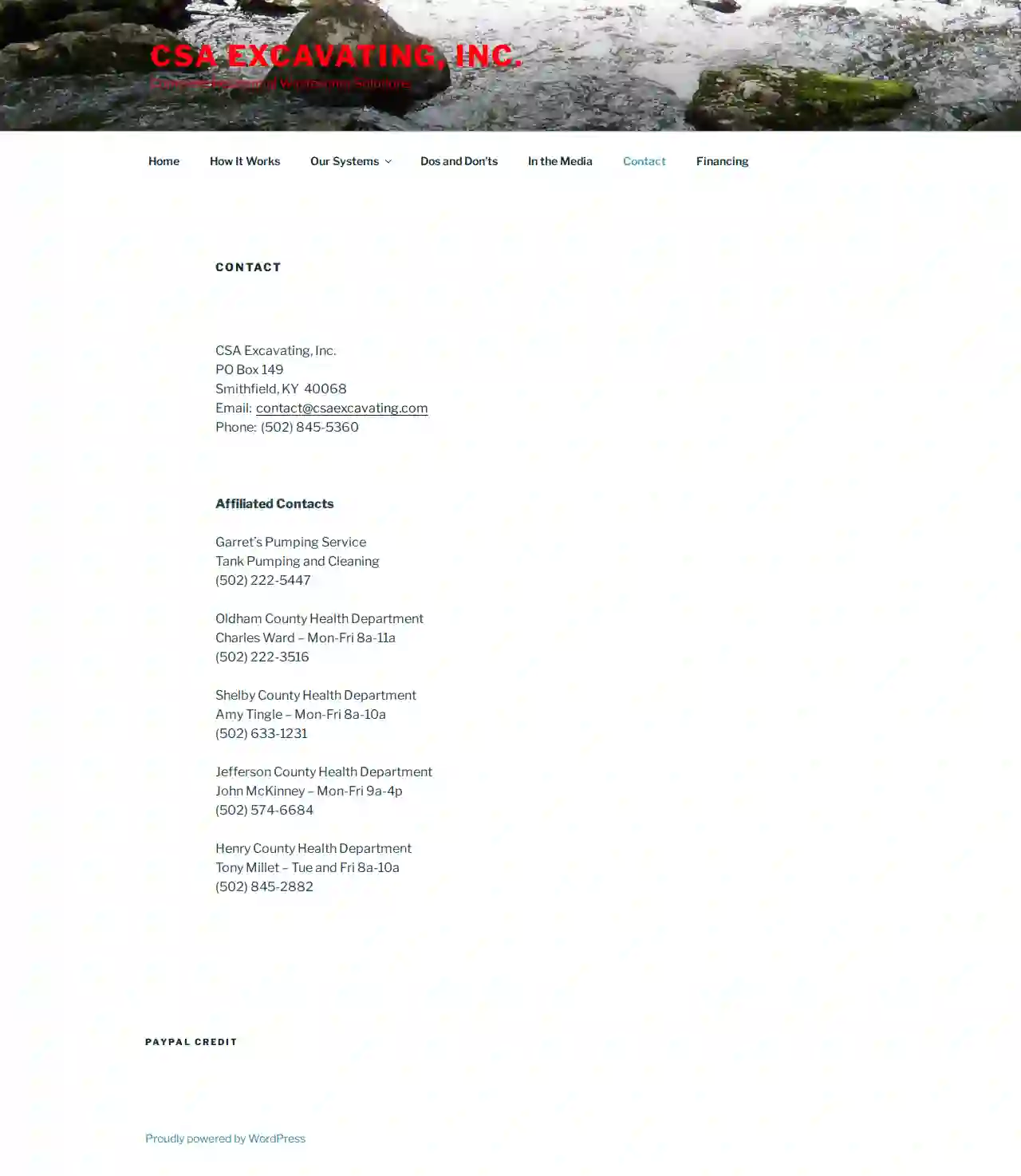
CSA Excavating
32 reviewsLouisville, US- Services
- Why Us?
Get Quote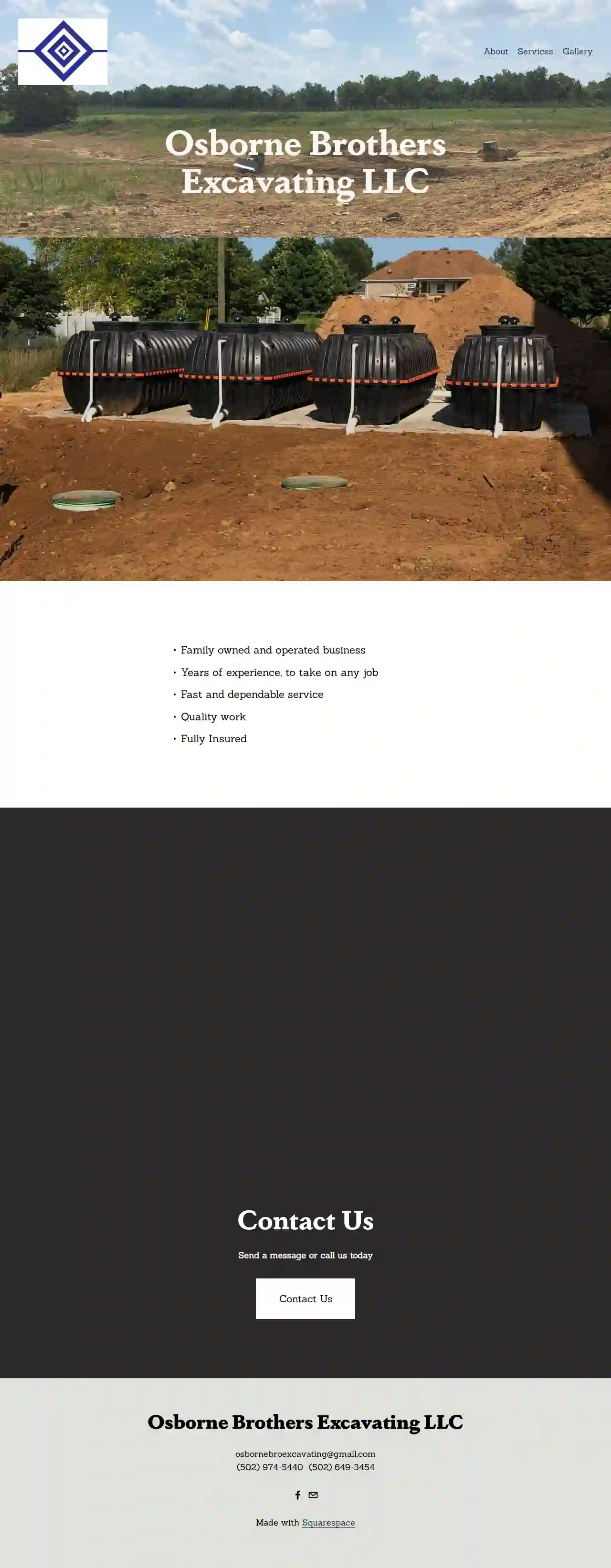
Osborne Brothers Excavating
53 reviewsLouisville, USOsborne Brothers Excavating LLC Osborne Brothers Excavating is a family owned and operated business with years of experience, ready to tackle any job. We provide fast and dependable service, ensuring quality work and are fully insured for your peace of mind.
- Services
- Why Us?
- Gallery
Get Quote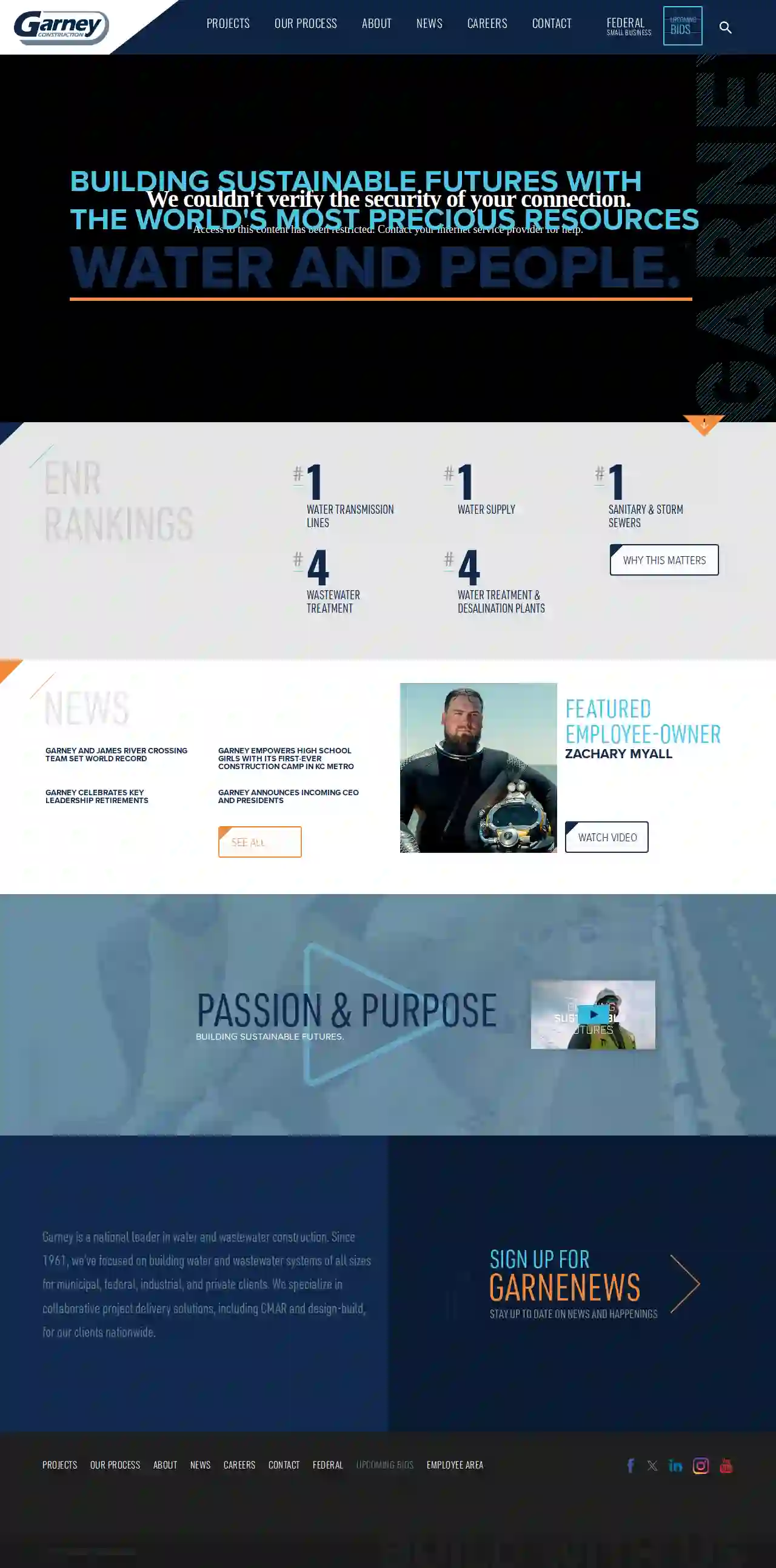
Garney Construction
51 reviewsLouisville, USBuilding sustainable futures with the world's most precious resources: Water and People.® Garney is a national leader in water and wastewater construction. Since 1961, we’ve focused on building water and wastewater systems of all sizes for municipal, federal, industrial, and private clients. We specialize in collaborative project delivery solutions, including CMAR and design-build, for our clients nationwide.
- Services
- Why Us?
- Gallery
Get Quote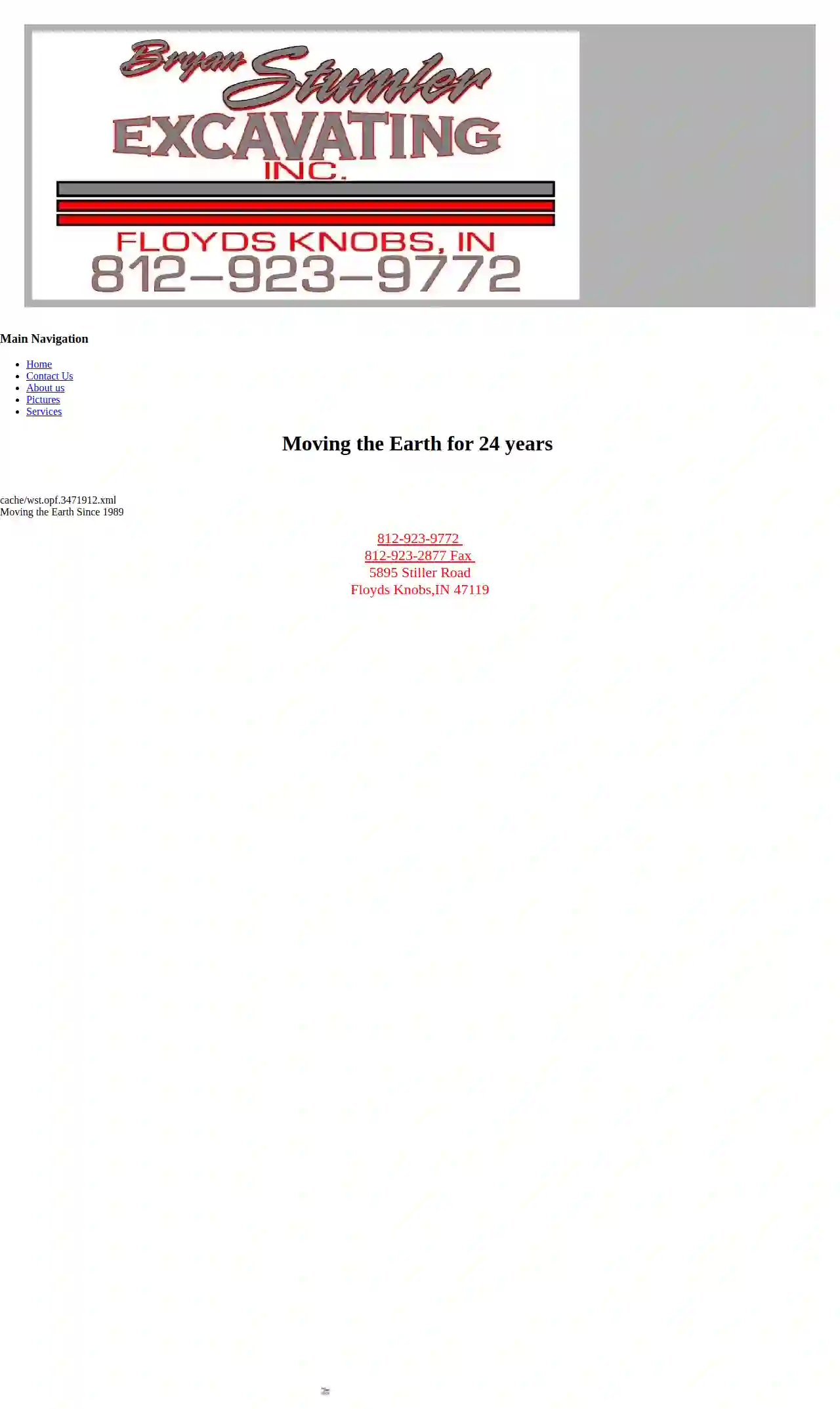
Bryan Stumler Excavating
4.68 reviews5895 Stiller Road, Floyds Knobs, 47119, USAbout Bryan Stumler Excavating Bryan Stumler Excavating is a family-owned and operated business located in Floyds Knobs, Indiana. We have been serving the Southern Indiana area since 1989, providing high-quality excavation and construction services for both residential and commercial clients. Our team of experienced professionals is dedicated to delivering exceptional results on every project, no matter how big or small. We take pride in our commitment to customer satisfaction and strive to build lasting relationships with our clients. We believe in open communication and transparency throughout the entire project process, ensuring that our clients are informed and involved every step of the way. Whether you need a new pond dug, a driveway installed, or a complete site preparation for a new construction project, Bryan Stumler Excavating has the expertise and equipment to get the job done right. We are committed to using the latest technology and techniques to ensure that our projects are completed efficiently and to the highest standards. Contact us today to discuss your project needs and learn how Bryan Stumler Excavating can help you achieve your goals.
- Services
- Why Us?
- Gallery
Get Quote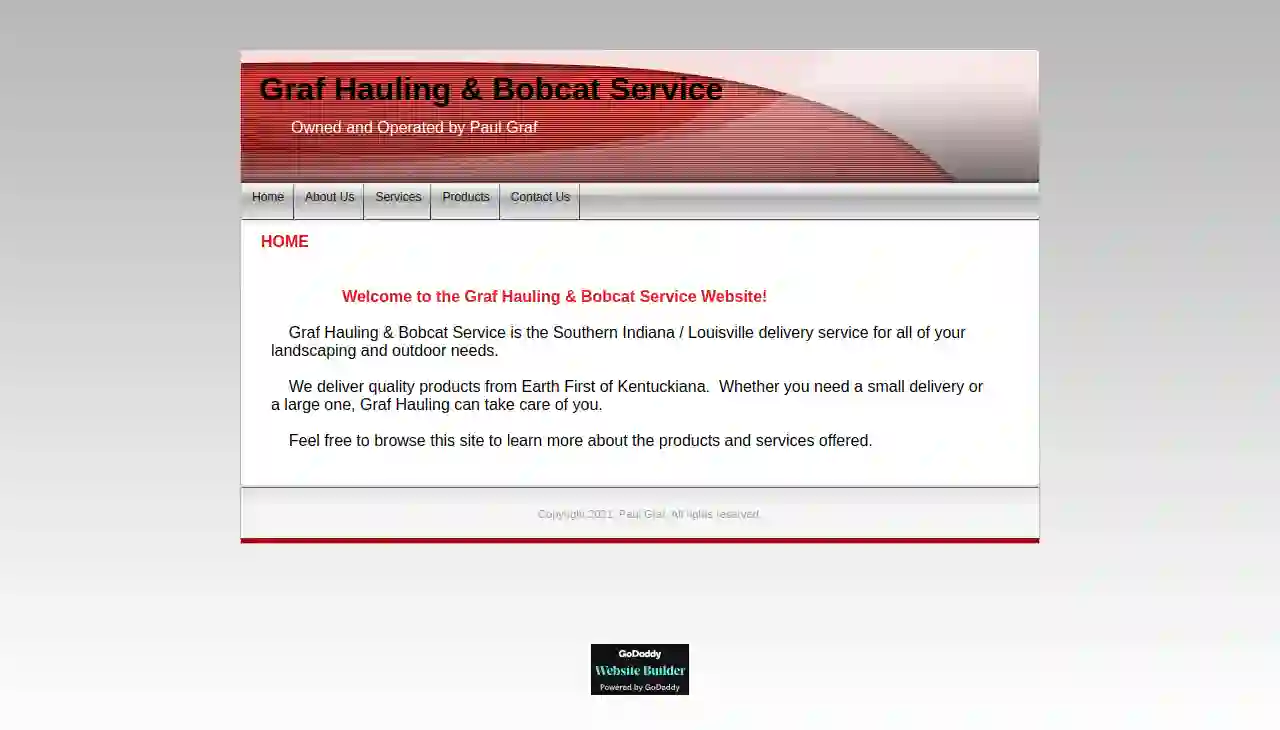
Graf Hauling And Bobcat Service
4.58 reviewsLouisville, US- Services
- Why Us?
Get Quote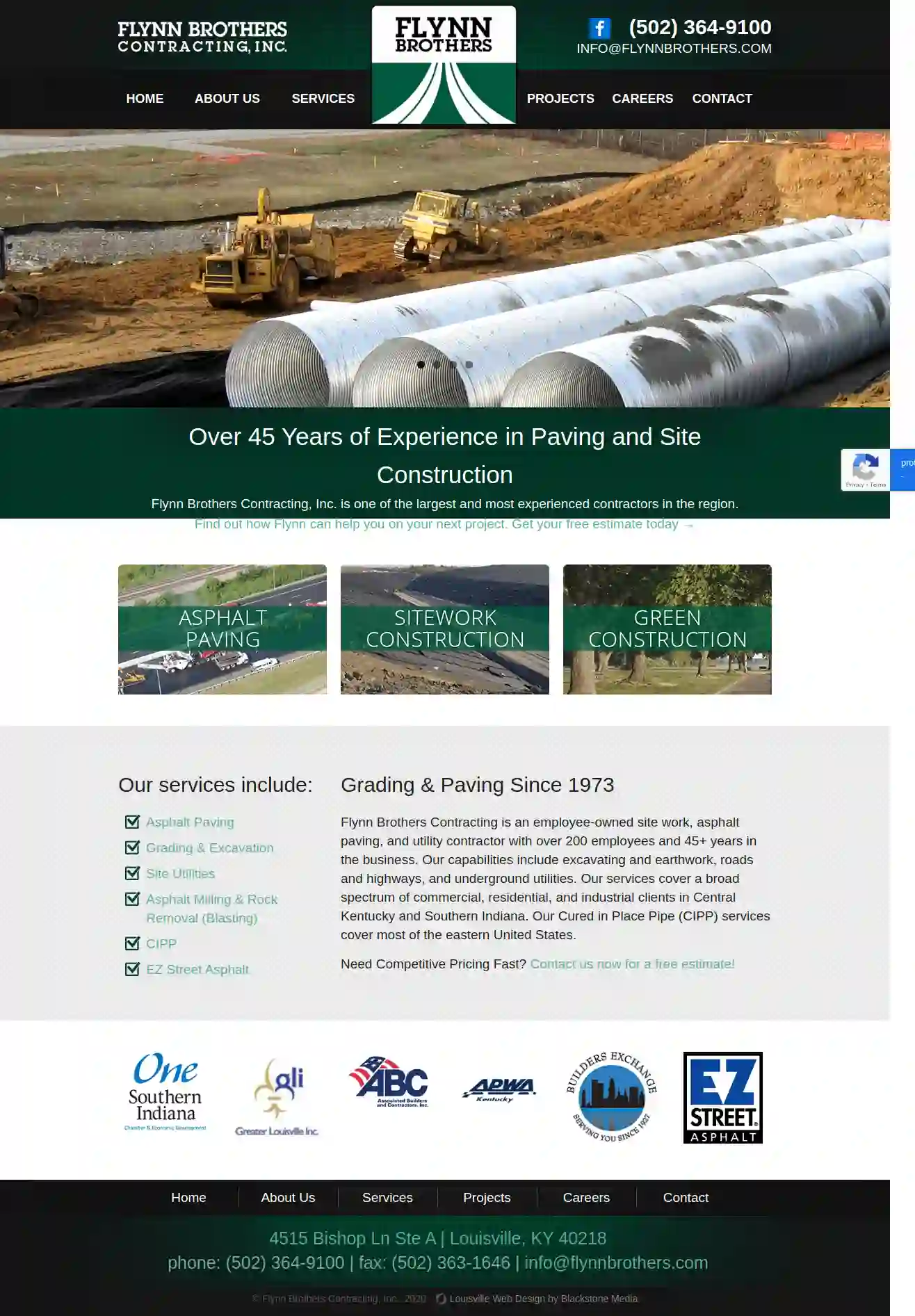
Flynn Brothers Contracting, Inc.
325 reviews4515 Bishop Ln Ste A, Louisville, 40218, USOver 45 Years of Experience in Paving and Site Construction Flynn Brothers Contracting, Inc. is one of the largest and most experienced contractors in the region. Find out how Flynn can help you on your next project. Get your free estimate today → Grading & Paving Since 1973 Flynn Brothers Contracting is an employee-owned site work, asphalt paving, and utility contractor with over 200 employees and 45+ years in the business. Our capabilities include excavating and earthwork, roads and highways, and underground utilities. Our services cover a broad spectrum of commercial, residential, and industrial clients in Central Kentucky and Southern Indiana. Our Cured in Place Pipe (CIPP) services cover most of the eastern United States. Need Competitive Pricing Fast? Contact us now for a free estimate!
- Services
- Why Us?
- Gallery
Get Quote
Over 3,943+ Excavation Pros in our network
Our excavation contractors operate in Louisville & surrounding areas!
ExcavationHQ has curated and vetted the Best Excavation Companies near Louisville. Find the most reliable pro today.
Frequently Asked Questions About Dirt Contractors
- For Structural Fill: Use compacted granular fill, such as gravel or crushed stone, for stability and drainage. Avoid using organic materials like topsoil or wood chips, as they decompose and can create voids over time.
- For Landscaping: If you plan to plant in the filled area, use a blend of topsoil and fill dirt. This provides a balance of fertility and structure. Amend the soil with compost or other organic matter to enhance its drainage and nutrient content.
- For Drainage: If the hole is intended for drainage, use a layer of gravel or crushed stone at the bottom to improve water flow. Then, backfill with a porous soil mix that allows water to percolate through.
- Clear the Area: Remove any obstacles, such as furniture, toys, or landscaping features, from the designated delivery zone.
- Mark Utilities: Contact your local utility companies to have underground utilities, such as water lines, gas lines, or electrical cables, marked to prevent accidental damage during delivery.
- Protect Existing Landscaping: Cover or move any valuable plants, shrubs, or trees that might be affected by the dirt delivery.
- Provide Access: Ensure the delivery truck has clear access to the delivery zone, including wide enough gates or driveways.
- Communicate with the Contractor: Discuss any specific instructions or concerns you have with the dirt contractor before delivery day.
- Clean Fill: Consists of uncontaminated soil, rock, or gravel, free from organic matter, debris, or hazardous substances. Suitable for most construction and landscaping projects.
- Structural Fill: A compacted granular fill, typically gravel, crushed stone, or a mixture of both, used for structural support and drainage. Ideal for foundations, roadways, and retaining walls.
- Engineered Fill: A specifically designed and blended soil mix with controlled properties, such as compaction, drainage, or bearing capacity, tailored for particular applications.
- Unsuitable Fill: Materials like topsoil, organic matter, or contaminated soil that are not suitable for structural fill due to their potential for decomposition, settlement, or environmental concerns.
- Increases Soil Stability: Compacted soil is less likely to shift, settle, or erode, providing a stable foundation for structures, walkways, or driveways.
- Improves Drainage: Compaction can enhance drainage by reducing the soil's porosity and allowing water to flow more efficiently.
- Reduces Settlement: Proper compaction minimizes future settling, preventing uneven surfaces or structural damage.
- Enhances Load-Bearing Capacity: Compacted soil can support heavier loads without excessive compression or deformation.
What type of dirt is best for filling a hole?
How do I prepare my yard for dirt delivery?
What are the different types of fill dirt?
What is dirt compaction, and why is it important?
What type of dirt is best for filling a hole?
- For Structural Fill: Use compacted granular fill, such as gravel or crushed stone, for stability and drainage. Avoid using organic materials like topsoil or wood chips, as they decompose and can create voids over time.
- For Landscaping: If you plan to plant in the filled area, use a blend of topsoil and fill dirt. This provides a balance of fertility and structure. Amend the soil with compost or other organic matter to enhance its drainage and nutrient content.
- For Drainage: If the hole is intended for drainage, use a layer of gravel or crushed stone at the bottom to improve water flow. Then, backfill with a porous soil mix that allows water to percolate through.
How do I prepare my yard for dirt delivery?
- Clear the Area: Remove any obstacles, such as furniture, toys, or landscaping features, from the designated delivery zone.
- Mark Utilities: Contact your local utility companies to have underground utilities, such as water lines, gas lines, or electrical cables, marked to prevent accidental damage during delivery.
- Protect Existing Landscaping: Cover or move any valuable plants, shrubs, or trees that might be affected by the dirt delivery.
- Provide Access: Ensure the delivery truck has clear access to the delivery zone, including wide enough gates or driveways.
- Communicate with the Contractor: Discuss any specific instructions or concerns you have with the dirt contractor before delivery day.
What are the different types of fill dirt?
- Clean Fill: Consists of uncontaminated soil, rock, or gravel, free from organic matter, debris, or hazardous substances. Suitable for most construction and landscaping projects.
- Structural Fill: A compacted granular fill, typically gravel, crushed stone, or a mixture of both, used for structural support and drainage. Ideal for foundations, roadways, and retaining walls.
- Engineered Fill: A specifically designed and blended soil mix with controlled properties, such as compaction, drainage, or bearing capacity, tailored for particular applications.
- Unsuitable Fill: Materials like topsoil, organic matter, or contaminated soil that are not suitable for structural fill due to their potential for decomposition, settlement, or environmental concerns.
What is dirt compaction, and why is it important?
- Increases Soil Stability: Compacted soil is less likely to shift, settle, or erode, providing a stable foundation for structures, walkways, or driveways.
- Improves Drainage: Compaction can enhance drainage by reducing the soil's porosity and allowing water to flow more efficiently.
- Reduces Settlement: Proper compaction minimizes future settling, preventing uneven surfaces or structural damage.
- Enhances Load-Bearing Capacity: Compacted soil can support heavier loads without excessive compression or deformation.